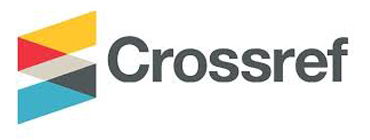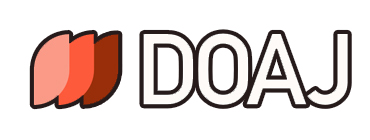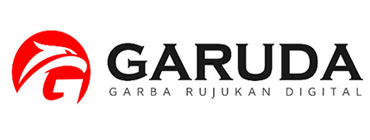STUDENTS' COLLABORATIVE SKILLS WITH AN APPROACH ETHNO-STEAM PROJECT OTK-OTOK GAME CONTEXT IN MATHEMATICS LEARNING
Abstract
Full Text:
PDFReferences
Atun, S., & Latupeirisa, V. P. S. (2021). Science KIT Teaching Aid for the Earthquake in Improving Students’ Collaboration Skills and Creative Thinking in Junior High School. European Journal of Educational Research, 10(1), 187–197. https://doi.org/10.12973/EU-JER.10.1.187
Bakhrodin, B., Istiqomah, U., & Abdullah, A. A. (2019). Identifikasi Etnomatematika Pada Masjid Mataram Kotagede Yogyakarta. Jurnal Ilmiah Soulmath : Jurnal Edukasi Pendidikan Matematika, 7(2), 113–124. https://doi.org/10.25139/smj.v7i2.1921
Balqist, A., Jalmo, T., & Yolida, B. (2019). Penggunaan Model Discovery Learning Untuk Meningkatkan Keterampilan Kolaborasi dan Berpikir Tingkat Tinggi. Jurnal Bioterdidik, 7(2), 103–111. http://jurnal.fkip.unila.ac.id/index.php/JBT/article/download/17287/12315
Bender. (2012). Project-Based Learning: Differentiating Instruction for The 21St Century. California: Corwin.
Cholily, Y. M. (2020). Matematika dan Pembelajaran Berbasis STEAM. Prosiding Seminar Nasional Matematika Dan Pendidikan Matematika FKIP UMP 29 Agustus 2020, 1–5.
Condliffe, B., Quint, J., Visher, M. G., Bangser, M. R., Drohojowska, S., Saco, L., & Nelson, E. (2017). Project-based Learning: a Literature Review. Mdrc : Building Knowledge to Improve Social Policy, P-12 Education, 2. https://www.mdrc.org/publication/project-based-learning
Dahlberg, K. O. & K. (2009). Collaboration in Student Teaching: Introducing the Collaboration Self-Assessment Tool, Journal of Early Childhood Teacher Education. Evaluation & the Health Professions, 30(1), 37–38. https://doi.org/10.1080/10901020802668043
DeCoito, I. (2016). STEM Education in Canada: A Knowledge Synthesis. Canadian Journal of Science, Mathematics and Eechnology Education, 16(2), 114–128. https://doi.org/10.1080/14926156.2016.1166297
Falcione, S., Campbell, E., McCollum, B., Chamberlain, J., Macias, M., Morsch, L., & Pinder, C. (2019). Emergence of Different Perspectives of Success in Collaborative Learning. The Canadian Journal for the Scholarship of Teaching and Learning, 10(2).
https://doi.org/10.5206/cjsotl-rcacea.2019.2.8227
Fitriyani, R. V., Supeno, S., & Maryani, M. (2019). Pengaruh LKS Kolaboratif Pada Model Pembelajaran Berbasis Masalah Terhadap Keterampilan Pemecahan Masalah Fisika Siswa SMA. Berkala Ilmiah Pendidikan Fisika, 7(2), 71. https://doi.org/10.20527/bipf.v7i2.6026
Gialamas, S., Grigoropoulos, J. E., Pelonis, P., & Cherif, A. H. (2020). How Can Manifesting Leadership Skills Infused with Ethos, Empathy, and Compassion Better Prepare Students to Assume Leadership Roles? International Journal of Progressive Education, 16(February), 2020. https://doi.org/10.29329/ijpe.2020.
Hermawan, H., Siahaan, P., Suhendi, E., Kaniawati, I., Samsudin, A., Setyadin, A. H., & Hidayat, S. R. (2017). Desain Instrumen Rubrik Kemampuan Berkolaborasi Siswa SMP dalam Materi Pemantulan Cahaya. Jurnal Penelitian & Pengembangan Pendidikan Fisika, 3(2), 167–174. https://doi.org/10.21009/1.03207
Hidayat, A. (2018). Meta Analisis: Pentingnya Self Dan Peer Assesment Dalam Pembelajaran. Jurnal Basicedu, 2(1), 95–101. https://doi.org/10.31004/basicedu.v2i1.127
Isharyadi, R. (2018). Pengaruh Penerapan Pendekatan Kontekstual Terhadap Peningkatan Kemampuan Pemecahan Masalah Matematis Siswa. AKSIOMA: Jurnal Program Studi Pendidikan Matematika, 7(1), 48. https://doi.org/10.24127/ajpm.v7i1.1342
Kuswara, R., Hartuti, P., & Sinthia, R. (2018). Efektivitas Layanan Konseling Kelompok Teknik Modelling Dalam Membentuk Keterampilan Kepemimpinan Siswa. Consilia : Jurnal Ilmiah Bimbingan Dan Konseling, 1(2), 39–48. https://doi.org/10.33369/consilia.1.2.39-48
Lee, D., Huh, Y., & Reigeluth, C. M. (2015). Collaboration, intragroup conflict, and social skills in project-based learning. Instructional Science, 43(5), 561–590. http://www.jstor.org/stable/43575307
Listiyani, L. R. (2018). Implementasi Model Pembelajaran Inkuiri Berbasis Refleksi Kelompok pada Materi Reaksi Redoks. Jipva, 2, 58. https://doi.org/10.31331/jipva.v2i1.576
Mesiono, Arsyad Junaidi, Nasution Sakholid, Susanti Eka, & Daulay Hamidah Sholihatul. (2017). Jurnal Tarbiyah. Tarbiyah, 24(Juli-Desember 2017), 351–370. http://jurnaltarbiyah.uinsu.ac.id/index.php/tarbiyah/article/view/229/217
Mu’Minah, I. H., & Aripin, I. (2019). Implementasi Stem Dalam Pembelajaran Abad 21. Prosiding Seminar Nasional Pendidikan, 1(2012), 1496. https://prosiding.unma.ac.id/index.php/semnasfkip/article/view/219
Norhaqikah, M. K. dan, & Kamisah Osman. (2017). STEM-21CS Module : Fostering 21st Century Skills through Integrated STEM. K-12 STEM Education, 3(3), 225–233.
Primadhini, A. F. (2021). Analisis Kepercayaan Diri Siswa Kelas VIII Pada Pembelajaran Matematika di Tengah Pandemi COVID-19. Jurnal Cendekia : Jurnal Pendidikan Matematika, 5(3), 2294–2301. https://doi.org/10.31004/cendekia.v5i3.751
Prodromou, T., & Frederiksen, N. (2018). The Effects of Mathematics Anxiety on Primary Students. Mathematics Education Research Group of Australasia, 639–646.
Qomaria, N., & Wulandari, A. Y. R. (2022). Pengembangan Keterampilan Kolaboratif Siswa Melalui Pembelajaran Dengan Pendekatan Ethno-Steam Project Konteks Pesapean. AKSIOMA: Jurnal Program Studi Pendidikan Matematika, 11(2), 1306. https://doi.org/10.24127/ajpm.v11i2.4586
Rizkiyah, Z. R., Hariyadi, S., & Novenda, I. (2020). The Influence of Project Based Learning Models on Science Technology, Engineering and Mathematics Approach to Collaborative Skills and Learning Results of Student. ScienceEdu, 3(2), 1–6. https://jurnal.unej.ac.id/index.php/S%0Acedu/article/view/16589
Saenab, S., Yunus, S. R., & Husain, H. (2019). Pengaruh Penggunaan Model Project Based Learning Terhadap Keterampilan Kolaborasi Mahasiswa Pendidikan IPA. Biosel: Biology Science and Education, 8(1), 29. https://doi.org/10.33477/bs.v8i1.844
Safarini, D. (2019). Developing students’ collaboration skills through project-based learning in statistics. Journal of Physics: Conference Series, 1265(1). https://doi.org/10.1088/1742-6596/1265/1/012011
Sumarni, W., & Kadarwati, S. (2020). Ethno-stem project-based learning: Its impact to critical and creative thinking skills. Jurnal Pendidikan IPA Indonesia, 9(1), 11–21. https://doi.org/10.15294/jpii.v9i1.21754
Triana, D., Anggraito, Y. U., & Ridlo, S. (2020). Effectiveness of Environmental Change Learning Tools Based on STEM-PjBL Towards 4C Skills of Students. Jise, 9(2), 181–187. http://journal.unnes.ac.id/sju/index.php/jise
Ulhusna, M., Putri, S. D., & Zakirman, Z. (2020). Permainan Ludo untuk Meningkatkan Keterampilan Kolaborasi Siswa dalam Pembelajaran Matematika. International Journal of Elementary Education, 4(2), 130. https://doi.org/10.23887/ijee.v4i2.23050
Ummah, S. K., Inam, A., & Azmi, R. D. (2019). Creating manipulatives: Improving students’ creativity through project-based learning. Journal on Mathematics Education, 10(1), 93–102. https://doi.org/10.22342/jme.10.1.5093.93-102
Uziak, J. (2016). A project-based learning approach in an engineering curriculum. Global Journal of Engineering Education, 18(2), 119–123.
Widarwati, D., Utaminingsih, S., & Murtono. (2021). STEAM (Science Technology Egineering Art Mathematic) Based Module for Building Student Soft Skill. Journal of Physics: Conference Series, 1823(1). https://doi.org/10.1088/1742-6596/1823/1/012106
Yakman, G., & Lee, H. (2012). Exploring the Exemplary STEAM Education in the U.S. as a Practical Educational Framework for Korea. Journal of The Korean Association For Science Education, 32(6), 1072–1086. https://doi.org/10.14697/jkase.2012.32.6.1072
Yaqin, M. A., Indriwati, S. E., & Susilo, H. (2018). Think-pair-square learning: Improving student’s collaborative skills and cognitive learning outcome on animal diversity course. JPBI (Jurnal Pendidikan Biologi Indonesia), 4(2), 135–142. https://doi.org/10.22219/jpbi.v4i2.5514
Yuntiaji, D. A., Lukman, H. S., & Imswatama, A. (2020). Digital Worksheet Design Based of STEAM to Develop Students’ Problem Solving Skill. Mathematics Education Journal, 4(2), 137–146. https://doi.org/10.22219/mej.v4i2.13313
Yusuff, K. B. (2015). Does self-reflection and peer-assessment improve Saudi pharmacy students’ academic performance and metacognitive skills? Saudi Pharmaceutical Journal, 23(3), 266–275. https://doi.org/10.1016/j.jsps.2014.11.018
Zubaidah, S. (2019). STEAM (science, technology, engineering, arts, and mathematics): Pembelajaran untuk memberdayakan keterampilan abad ke-21 [STEAM (Science, Technology, Engineering, Arts, and Mathematics): Learning to Empower 21st Century Skills]. Seminar Nasional Matematika Dan Sains, September, 1–18.
DOI: http://dx.doi.org/10.30829/tar.v31i1.3059
Refbacks
- There are currently no refbacks.

Jurnal Tarbiyah by UIN Sumatera Utara Medan is licensed under a Creative Commons Attribution-NonCommercial-ShareAlike 4.0 International License.
Based on a work at http://jurnaltarbiyah.uinsu.ac.id/index.php/tarbiyah.
Permissions beyond the scope of this license may be available at http://jurnaltarbiyah.uinsu.ac.id/index.php/tarbiyah/about/submissions#copyrightNotice.
















